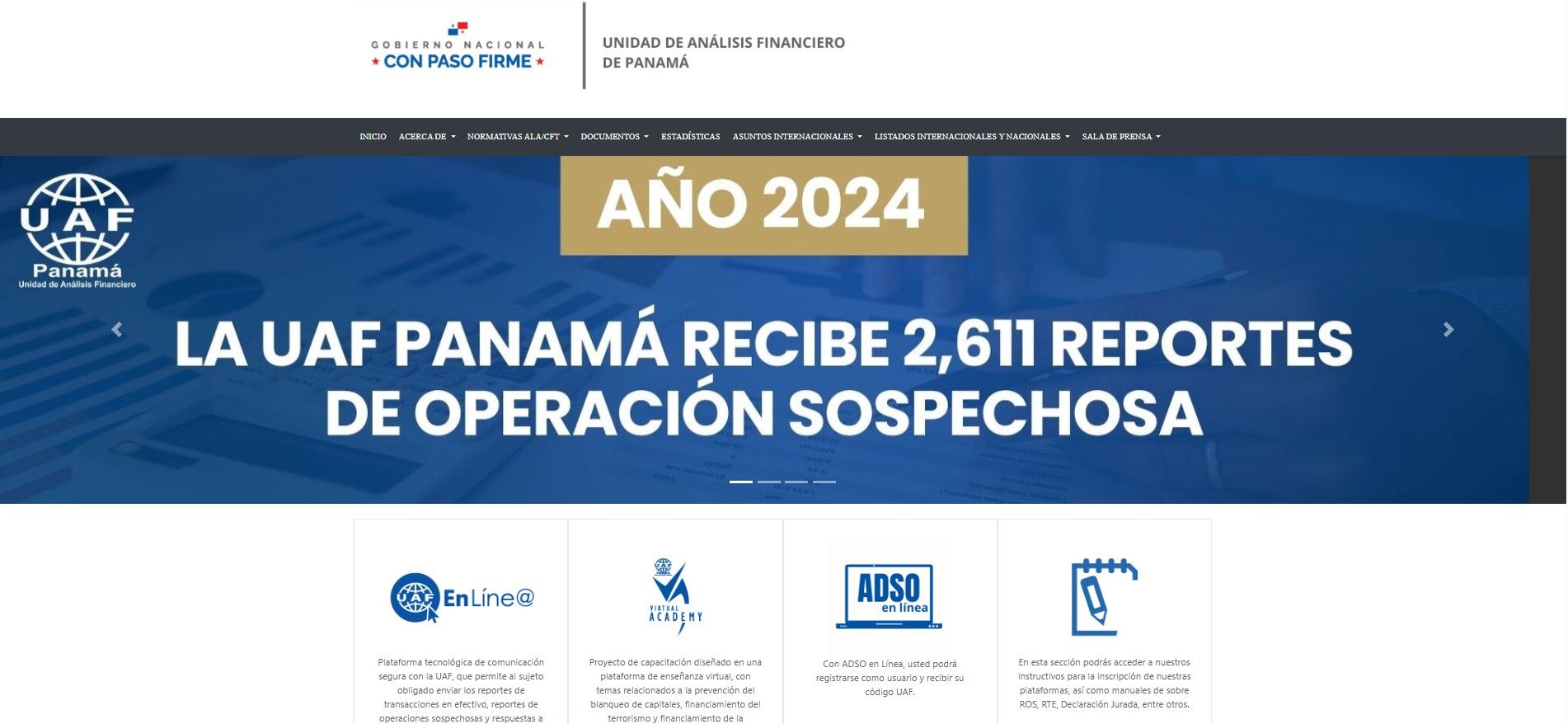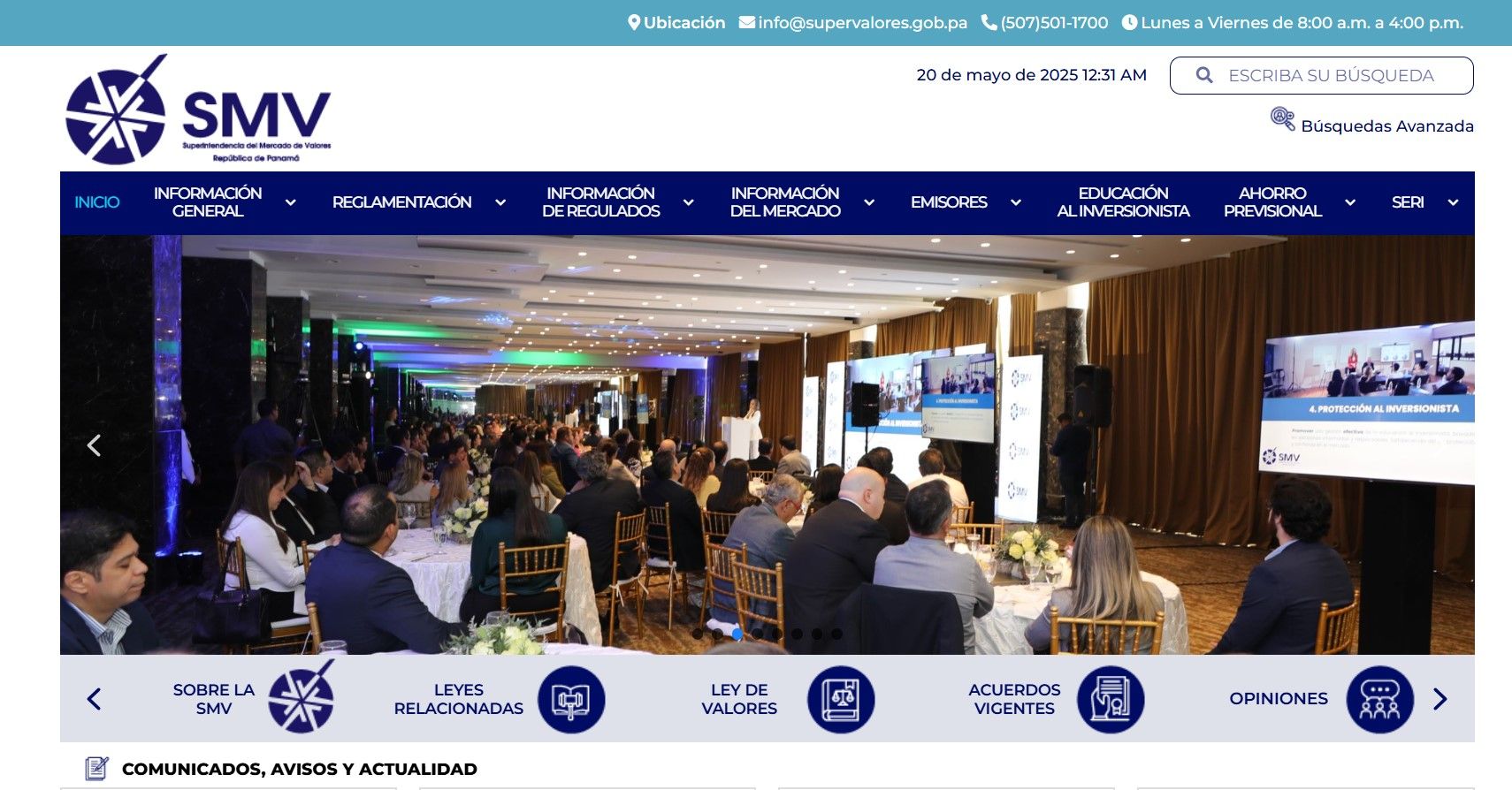Obtaining a crypto permit in Panama is a viable option for registering a crypto venture with a favourable tax regime and a well-developed financial infrastructure.
Digital asset licensing in Panama is a step towards recognising ventures as legitimate and trustworthy.
Thanks to its favourable tax regime and stable financial system, Panama is considered an attractive location for venture. The country is now striving to become a jurisdiction for legal crypto ventures. It is possible to register a crypto venture in Panama without the founder having to be present permanently.
This post will describe the steps involved in obtaining a crypto permit in Panama, including the documents needed and the turnaround time. It will go over venture requirements, tax laws, and banking and payment service links.
Anyone wishing to legalise crypto, launch a start-up, or register a blockchain technology venture in Panama will find this information helpful.
Crypto-regulation in Panama: legal framework and prospects
No legislation in Panama specifically governs crypto activity. National laws do not recognise the idea of a permit for digital assets.
International regulatory standards, such as those set forth by the FATF and GAFILAT, are enforced by state authorities. By modifying current financial control laws, the legal acceptance of cryptocurrencies and blockchain ventures is progressively growing.
Panama applies pre-registration and AML/CFT compliance. Ventures dealing with digital assets must establish a legal entity and implement compliance procedures.
Operating with digital assets in Panama is more akin to achieving a status that confirms compliance with established regulations than obtaining a separate authorisation document.
Legislative framework
Digital assets are not governed by a single law in Panama. Nonetheless, a legal framework is developing as a result of both international influence and domestic legislation.
Bill 697 was suggested to recognise virtual assets as legal entities when it was first proposed in 2022. The bill contained clauses on venture registration and the creation of a regulatory framework for blockchain technology. However, due to its failure to meet financial standards and potential to upset the nation's monetary balance, the project was later rejected.
A proposed law to regulate crypto service providers in Panama was introduced in 2023. The status of VASPs (organisations dealing with digital assets) is formalised by this act. It suggests requiring these ventures to pre-register and put internal controls in place, such as risk assessment and customer identification processes.
FATF standards and other international practices are the focus of the draft. Even though the draft law hasn't been approved yet, its provisions are already being used in practice, such as when crypto ventures are registered and venture models are verified in Panama.
Law 129 of 2020 regulates the disclosure of information on the ultimate beneficial owners of legal entities registered in Panama. Under this law, ventures planning to register a crypto venture in Panama must transfer ownership data to a closed public registry via a resident agent.
Law No. 23 of 2015 sets out the key principles of internal regulation. These include mandatory measures for customer verification, operational risk analysis, and documentation. These rules apply to all organisations dealing with digital assets.
Responsibility for regulating crypto ventures is shared among several authorities
The Unidad de Análisis Financiero (UAF) is the major analytical body in charge of overseeing financial transparency. The UAF collects, processes, and transmits essential data on suspicious transactions and monitors entities subject to internal control and customer identification obligations.

UAF website
Law 23 (2015) lays out the requirements for ventures, including those about to register a crypto venture in Panama, mainly implemented by the UAF.
Despite UAF does not grant crypto permits, it is authorised to:
- Communicate with supervisory bodies;
- Demand financial reporting;
- Proceed inspections.
The UAF takes firm action in the case of suspending an entity’s operations and law violations.
Superintendencia del Mercado de Valores (SMV) is the state supervisory authority for the capital market in Panama. It is responsible for supervising the issuance and distribution of investment instruments, including tokens with securities-like properties.
Once a crypto project entails the issuance of tokens, SMV should be informed, and the applicable disclosure requirements must be met. This is especially crucial for entrepreneurs who raise money from investors by applying for a blockchain venture permit in Panama.

SMV website
Superintendencia de Bancos de Panama (SBP) governs and oversees the domestic banking industry. When opening corporate accounts or communicating with financial institutions, ventures that deal with digital assets and intend to use payment infrastructure should follow SBP regulations.
To prevent being turned away, those wishing to register a venture in Panama with a crypto permit should make sure that everything is transparent and compliant.

SBP website
International co-operation and the influence of the FATF
Panama closely interacts with international organisations to mitigate crypto use for illicit money transfers.
Panama participates in the FATF through the Financial Action Group for Latin America (GAFILAT) without a direct membership in this organisation. Panama modifies its legislation in adherence with FATF regulations, particularly applicable to crypto activities.
The implementation of AML (Anti-Money Laundering) and KYC (Know Your Customer) regulations has made a great difference. These regulations oblige ventures to:
- Provide data upon request;
- Track their transactions;
- Validate clients.
The applicable laws and regulatory system are pivotal for crypto ventures registered in Panama. Even though the legislation is still in its early stages, it allows projects to be launched legally and in compliance with international standards.
What are the risks of not being registered and compliant?
Operating cryptocurrencies in Panama without official registration or respect for financial transparency criteria is regarded as high-risk behaviour. Ventures cannot link to settlement systems or engage with the payment infrastructure and banking services.
Without the registration and the application of AML/CFT, ventures ambitious to access global financial markets will not be able to safeguard their best interests in case of conflicts. Participation in blockchain initiatives is impossible without legal status: the transactions will be blocked, services will be denied, and regulatory authorities will impose sanctions:
- Keeping records;
- Getting supporting documentation;
- Addressing claims during audits.
The uncertainty assumes a major road bump given the increasing attention to digital assets.
Registering a crypto venture in Panama and complying with financial monitoring mechanisms is the only way to formalise the crypto venture.
How important is it to get a crypto venture permit in Panama?
While getting a crypto permit is not yet mandatory in Panama, it is still advisable. It is difficult to conduct venture activities, deal with banks, or enter international markets without a permit.
Ventures applying for a crypto permit in Panama pursue permitd status to work with financial institutions, boost customer confidence, and mitigate legal risks.
Without official authorisation, the domestic banks will refuse account opening. In case of legislation changes, the illegal movement of funds may result in administrative or even criminal prosecutions. Hence, it is vital to register a crypto venture in Panama and file all authorisation documents.
What crypto activities require a permit?
To apply for a permit for crypto activities in Panama, it is necessary to determine whether the venture falls under one of the following categories:
- Operating crypto exchanges, online wallets, and other platforms that provide exchange services. It also involves implementing KYC procedures and controlling the source of funds.
- Placing crypto on platforms or wallets where a third party exercises control.
- Operating crypto exchanges, aggregators, marketplaces, and DeFi interfaces that provide users with access to buy and sell tokens or cryptocurrencies.
- Services related to user-to-user transactions, including API integrations, payment gateways, and transaction modules.
- Verifying smart contracts, tracking transactions, analysing the flow of funds, and identifying suspicious transactions.
- Creating interfaces, platforms, or wallets for the processing or temporary storage of digital funds on behalf of a client.
- Coping with DeFi, DAO, NFT, and tokenisation, as well as fundraising on blockchain platforms. This is particularly important where user funds need to be managed.
- Developing corporate wallets, custodian vaults, key transfer modules, APIs and cloud platforms that support transactions with digital assets.
All of these activities are subject to regulation as they are potentially risky from an AML and financial security perspective.
To operate sustainably in the crypto market, determine whether a digital asset permit is required in Panama, adapt your venture model to the regulatory requirements, and apply for a permit.
Requirements for ventures and formation of the documentary package
To obtain a crypto permit in Panama, adhere to the formal requirements and deliver a full set of documents.
- Access controls;
- Backups;
- DDoS protection.
All user actions should be logged and retained for the legally necessary duration.
A list of required documents
- Statutory documents: registration certificate, memorandum of association, articles of association, and list of shareholders.
- Evidence of technical security: description of the technologies used, compliance certificates, the results of penetration testing, and information on data protection and risk management systems.
- Evidence of qualified personnel: CVs of key employees, copies of diplomas and certificates, and employment contracts.
- Relevant documents relating to the founders and beneficiaries: foreign passports, criminal record certificates, and proof of the source of funds.
- The venture plan and model description: data on the venture's objectives, target audience, sources of revenue, marketing strategy, and projected revenue.
- The KYC/AML policy comprises internal rules for identifying customers, verifying the origin of funds, and tracking suspicious transactions.
The list of documentation required may vary, for example, a crypto permit for a start-up in Panama may require additional evidence of sustainability and long-term viability.
The first step towards legalising a digital venture is to register a crypto venture in Panama to work with banks, build trust, and prepare for a potential transition to a regulated regime.
A step-by-step guide to registering a crypto venture in Panama
Registering a crypto venture in Panama is mandatory to interact with banks and follow local regime stipulations.
Set up a venture
The Sociedad Anónima (S.A.) is the most common venture type in Panama, similar to a joint stock venture with:
- Liability protection;
- Management flexibility;
- International recognition.
Decide on your venture’s name, authorised capital, and shareholder structure. Only one founder is allowed, while you can complete venture registration remotely with your lawyer or notary.
Open a bank account and obtain a tax number
Local banks will require a clear corporate model and full transparency of future transactions:
- Arrange your venture portfolio beforehand;
- Prove your venture's adherence to KYC/AML standards;
- Select a bank open to innovations.
Apply for Registro Único del Contribuyente (RUC). This number is similar to a TIN and is mandatory to:
- Deal with local tax authorities;
- File reports;
- Perform financial activities.
You can register for RUC at the Ministry of Finance office or via an authorised representative. Classify the kind of economic activity as a crypto venture in Panama.
Prepare internal documentation
Ensure that your internal regulatory framework is in place. The paperwork should be arranged before applying to the regulatory authorities:
- Arrange your internal structure of controls;
- Determine mechanisms to detect potential risks;
- Ensure financial security and client safety;
- Document the operational framework and technical measures.
All decisions are recorded as approved regulations to prove that your venture can now operate transparently in compliance with internationally accepted standards.
Submit documents to the authorities
Once a legal entity has been registered and its internal regulatory framework has been prepared, decide whether your future crypto activities are subject to the supervision of existing financial authorities. This will determine where and to what extent documents should be sent.
A legal status is formalised through the existing financial regulatory system.
If your venture model entails working with investment assets, submit information to Superintendencia del Mercado de Valores (SMV). For banking products, contact Superintendencia de Bancos de Panamá (SBP). All ventures subject to financial monitoring should register with Unidad de Análisis Financiero (UAF).
Pass the AML/CFT compliance examination.
The purpose of verification is to assess the venture’s approach to managing risks associated with money laundering, financing prohibited organisations, and anonymous transactions.
Special attention is paid to monitoring mechanisms. If the mechanism is not fit for purpose or does not correspond to the threat level, your application will be denied.
Inclusion in the register and authorisation
The regulator makes a final decision once verification is complete. Once your application adheres to all the criteria, the venture will appear in the registry of virtual asset service providers.
Regular reporting and supervision
Maintaining legal status means ongoing adherence to regulatory requirements. You should keep internal records and transaction records, retain documentation and share data with supervisory bodies if necessary. The requirement applies to both transactional activity and customer identification.
Digital asset ventures fall within the remit of Ley 23 de 2015 to ensure compliance with internal monitoring procedures and UAF inspections. Supervision may also be carried out by the SMV or SBP in cases involving investment or banking products. The inspection may be routine or carried out in response to a breach.
To register and manage your venture correctly in Panama, implement a robust management model. This involves regularly updating internal documentation, training employees, ensuring technical protection of operations, and interacting with regulatory bodies.
Without professional support and guidance, a venture may lose its legal status even after a successful launch.
Contact our specialists
Cost and processing time
Government fees, application fees, and permit fees.
For most crypto ventures, the fee ranges from $1,000 to $3,000. This fee covers:
- Reviewing the application;
- Verifying the documents;
- Issuing the permit.
Additional payments may be required in the event of repeated applications or adjustments. All payments must be made in the national , the balboa (PAB), equal to the USD..
Extra costs
The process of getting a crypto permit in Panama requires professional legal support.
Paid translations of documents into Spanish and notarisation are also required. Some ventures may also require an audit of their KYC/AML system. If local office registration or the appointment of a representative is required, this will increase costs.
Approximate timeframes for processing applications
Getting a blockchain venture permit depends on the readiness of your documentation and the venture of the regulator.
The process takes between four and six months. First, there is a preliminary examination, followed by requests for revisions if comments are required, before final approval is given. The procedure is sometimes delayed due to the need to provide additional data on owners or technical infrastructure.
Taxation of crypto ventures in Panama
Panama's tax system depends on territoriality. All income from international transactions outside Panama are deemed as foreign income and is subject to local taxation.
Banking and payment service connections
Panama's banking infrastructure is among the most developed in Latin America. Nevertheless, it remains challenging for crypto activities. Local banks are cautious about digital asset ventures. Still, you can obtain a crypto permit in Panama and access financial systems.
The banking sector in Panama and its attitude towards the crypto industry
While Panama's banking system is well developed, most institutions are cautious when dealing with crypto activities because of:
- High risk level;
- Insufficient regulation;
- Pressure exerted by international organisations.
These banks are open to working with crypto ventures:
- Banistmo;
- Banco General;
- Caja de Ahorros.
It will take between two and six weeks to open a corporate account Panama.
Documents required to open a corporate account:
- Statutory documents;
- Documents about managers and beneficiaries;
- Venture plan;
- KYC/AML policy;
- Anti-money laundering regulations;
- Technical security certificate;
- Proof of qualified staff.
Some banks may request additional information, such as financial statements or an independent audit report.
Integration with payment systems
When setting up a crypto venture in Panama, integrating with global payment systems is pivotal. You can integrate your venture activity with Visa, Mastercard, and PayPal through partner banks and aggregators.
Working with these payment systems, you need an aggregator or partner bank open to deal with crypto ventures. In Panama, such services are provided by:
- PayU, which allows you to connect to several payment gateways, including local and international ones.
- Stripe currently works with crypto ventures to a limited extent, but it does accept applications from permitted ventures.
- Local payment gateways such as PayCore, CoinPayments, and NOWPayments are more accommodating towards crypto projects.
Aggregators help crypto ventures integrate with various payment methods.
Challenges and solutions
Panama offers jurisdiction has its drawbacks, including:
- Unstable legal environment;
- Complicated access to banking services;
- Robust requirements from international organisations.
There is also a risk of regulatory changes. The jurisdiction lacks a unified law on cryptocurrencies. This gives ventures flexibility and the ability to operate under a transitional regime.
However, this situation could change dramatically. A bill on digital financial assets has already been drafted, and if passed, it will introduce mandatory licensing and new requirements. Ventures that started operating without official authorisation may urgently need to adapt or even cease operations. Therefore, legalising a crypto venture in Panama is not only desirable but also a strategically important step.Without a reliable banking partner, it is difficult to conduct transactions, withdraw funds and cooperate with traditional payment systems.
Conclusion
Panama ia among the most attractive jurisdictions to register a crypto venture:
- Favourable tax regime;
- Income tax exemption for offshore ventures;
- Straightforward registration process.
All these regulatory and tax advantages turn the jurisdiction into a popular option for international entrepreneurs.
Considering all the mentioned pros and cons of the crypto business registration in Panama, I would advise against registering alone.
As a team of specialists experienced in crypto permit services, we offer diligent facilitation throughout the entire process.






 How to open a bank account in Panama in 2026
How to open a bank account in Panama in 2026  Establishing an investment fund in Panama
Establishing an investment fund in Panama  Why to buy property in Panama
Why to buy property in Panama  Golden Visa in Panama
Golden Visa in Panama  Support of investment projects in Panama
Support of investment projects in Panama  Yacht registration in Panama: What you need to know before making a decision
Yacht registration in Panama: What you need to know before making a decision 



